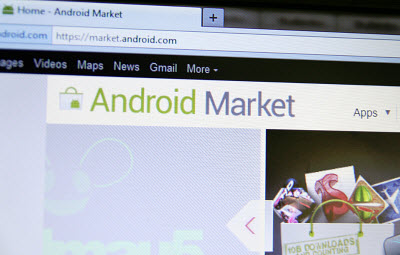While the iPhone has always been the top smartphone for shoppers, its share is declining.
Traditionally – if one can use that word in the young world of mobile commerce – the largest number of sales have, by far, come from iPhones and iPads, whose owners have made far more and far larger purchases over their mobile devices than their Android gadget using counterparts.
However, this trend is shifting and over the last year, Android has gained a lot of ground in m-commerce sales.
In fact, recent data that was used in a report put out by BI Intelligence has shown that Android is rapidly closing the mobile commerce sales share gap in a number of different ways. The report examined a number of the trends that have occurred since the last holiday shopping season and has discovered that there have been notable changes in the average order value (AOV), the conversion rate, and the order share when it comes to mobile devices on these two most popular platforms.
These mobile commerce trends are important as they help to guide marketers and retailers in targeting their experiences.
 The report indicated that Android is closing the m-commerce sales gap quite quickly. Among the ways in which serious changes were made over the last year are the following:
The report indicated that Android is closing the m-commerce sales gap quite quickly. Among the ways in which serious changes were made over the last year are the following:
• Average order value – The average AOV over Android phone was $120, which was much closer to the average iPhone order at $129. The gap between tablets didn’t appear to shrink in any meaningful way.
• Conversion rate – Monetate stats showed that there was a 0.7 percent conversion rate with Android visitors, which was lower than the iPhone rate of 0.9 percent, but that was much closer than last year.
• Order share – About one in five sales on the Custora m-commerce platform was from Android based devices, a notable increase, particularly as the share from iPhones dropped at the same time.
The mobile commerce report also indicated that as Android becomes a more important commercial platform, it is not only taking a larger share of the space previously occupied by iOS based devices, but it was also seen to have been taking up more of online shopping as a whole.

 The report indicated that
The report indicated that 